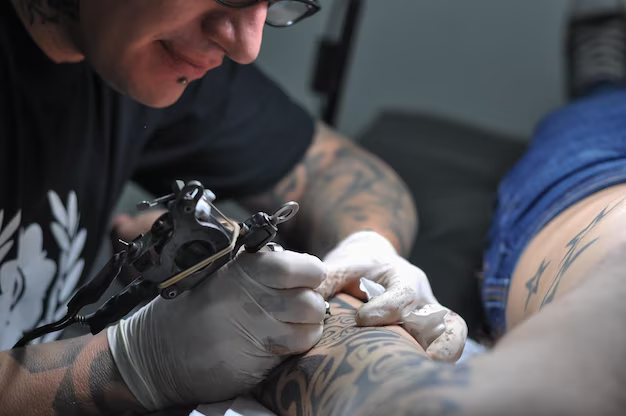Your Guide to Can Diabetics Have a Tattoo
What You Get:
Free Guide
Free, helpful information about Diabetes FAQ and related Can Diabetics Have a Tattoo topics.
Helpful Information
Get clear and easy-to-understand details about Can Diabetics Have a Tattoo topics and resources.
Personalized Offers
Answer a few optional questions to receive offers or information related to Diabetes FAQ. The survey is optional and not required to access your free guide.
Tattoos and Diabetes: What You Need to Know Before Getting Inked
Tattoos have long been a form of personal expression, a way to wear one’s heart on one’s sleeve—literally. However, if you have diabetes, you might wonder if it’s safe to get a tattoo. Understanding the risks and precautions involved is crucial, as impaired wound healing and skin infections must be carefully managed. So, can diabetics safely get tattoos? The short answer is yes, but with special care and considerations.
Diabetes and Skin Health
People with diabetes are often more susceptible to skin infections and slower wound healing. This stems from potentially high blood sugar levels that, if not well-managed, can compromise circulation and slow the body’s natural healing processes. Therefore, it's essential that your diabetes is well-controlled before getting tattooed.
Precautions Before Getting a Tattoo
Consult Your Doctor: First and foremost, discuss your plans with your healthcare provider. They can help you evaluate your current health status and determine whether it’s safe for you to get a tattoo.
Check Your Blood Sugar Levels: Ensure that your blood sugar levels are stable and controlled. This minimizes the risk of complications during and after the tattooing process.
Select a Reputable Tattoo Parlor: Choose a licensed and professional tattoo artist known for adhering to health and safety guidelines. A clean and sterile environment is vital for preventing infections.
Consider Tattoo Placement: Areas with poor blood circulation, like ankles and feet, should generally be avoided. Opt for areas of your body that heal faster.
Aftercare Essentials: Follow all aftercare instructions from your tattoo artist to the letter. This includes keeping your tattoo clean, moisturized, and protected from direct sunlight.
The Healing Process
Diabetes management doesn’t stop once the tattoo is complete. Monitor your healing process closely and watch for signs of infection, such as redness, swelling, or unusual discharge. If you notice any of these symptoms, contact your doctor immediately.
Now, while tattoos can be a unique way to express yourself, financial stability and health management involve much more than just medical care. With the rising cost of healthcare and living, aligning your financial and health needs is crucial. Programs for financial aid, grants, and assistance are essential for anyone managing chronic health conditions like diabetes.
Financial Assistance Programs for People with Diabetes
While contemplating getting a tattoo might involve considerations of personal style, managing diabetes involves planning and financial foresight. Here are some programs and resources that might help you balance your health and financial well-being:
🩺 Medicaid and Medicare: These programs offer coverage for many diabetes-related supplies and medications.
💵 Health Insurance Marketplaces: Compare plans to find one that provides sufficient coverage for prescriptions and diabetes care.
💳 Medical Credit Cards: These can assist in spreading out the cost of expensive procedures or treatments, helping you manage your finances more effectively.
🎓 Educational Grants: Explore grants designed for diabetics to pursue further education, which could improve job prospects and long-term financial security.
📈 Debt Management Programs: If diabetes management has affected your finances, consider strategies like debt consolidation or counseling to regain balance.
In conclusion, while diabetics can get tattoos, it involves meticulous preparation and ongoing health management. Consider not only the aesthetic and personal value but also the financial and health dimensions before embarking on this colorful journey.
What You Get:
Free Diabetes FAQ Guide
Free, helpful information about Can Diabetics Have a Tattoo and related resources.

Helpful Information
Get clear, easy-to-understand details about Can Diabetics Have a Tattoo topics.

Optional Personalized Offers
Answer a few optional questions to see offers or information related to Diabetes FAQ. Participation is not required to get your free guide.


